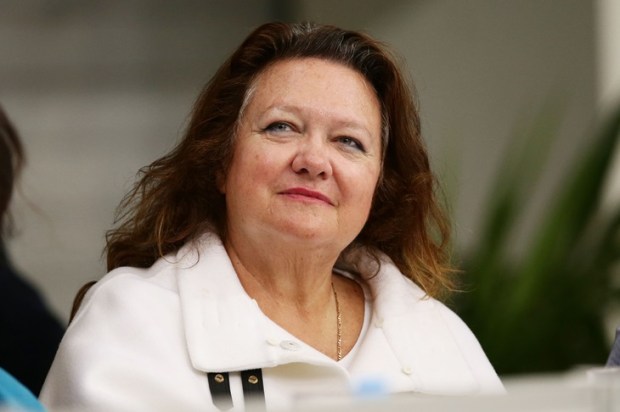‘The clear problem with the outlawing of insult is that too many things can be interpreted as such. Criticism is easily construed as insult by certain parties… The law should not be aiding and abetting this new intolerance.’
– Rowan Atkinson
Donald Trump’s return to the White House, which many more qualified voices have already written about for this publication, is miraculous. It very well could be morning in America again. But back at home, within our own democracy, an egregious scheme is playing out and it demands, immediately, our refocused attention and opposition.
It surely can be no coincidence that during the week of the US Presidential election, upon which so many Australians have affixed their interest, the Albanese government has rammed its Communications Legislation Amendment (Combatting Misinformation and Disinformation) Bill 2024 through the House of Representatives. The bill was debated for more than five and half hours on Wednesday, with Parliament adjourning late into the night at 10:00 pm. It passed around midday on Thursday, 79 ayes to 56 noes, inclusive of Teal-proposed amendments.
Much is at fault with this Orwellian bill. In my view, it is the logical progeny of the third-party fact-checker, a most absurd progenitor to begin with. In those olden times, of which many say I am too fond, the contest of ideas was fought by statesmen who were ever-learning and proudly attached to their own certainty. It is impossible to imagine, for instance, Cicero and Clodius, Hobbes and Rousseau, Kant and Hegel, Gladstone and Disraeli, Dawkins and Lennox, or Menzies and Evatt deferring their respective arguments to some faceless arbiter for assessment. More, Harvard research championed by Bjorn Lomborg – now conveniently redacted – finds that ‘misinformation experts’ disproportionately lean to the political left. Can we be assured, then, that these same arbiters, as purported experts, are always even-handed in their adjudications; can we even be sure that even-handedness is their collective intention? Surely life was simpler before we, in this fraught way, began outsourcing our intelligence? No, the fact-checker is not a prerequisite for navigating our post-postmodern world; only through individual authenticity – that is, the honest accumulation of knowledge, then exercised honestly – can the damages of postmodernism be reversed.
What I am left wondering is how this Misinformation and Disinformation bill might tangibly affect someone like me, as well as all those who contribute to Speccie and even Speccie itself.
The bill, through subclauses 16(2) and (3), classes ‘professional news content’ as ‘excluded dissemination’; in essence, journalists are exempt from the bill’s regulations. Subclause 16(1) would seem to further exempt comedians, artists, academics, scientists, and religious authorities, though the bill makes no provisions for how the statuses of these individuals might be verified. Freelance writers and thinkers find themselves in even less defined waters.
Subclause 5(1) of the bill defines a ‘digital communications platform’ as a ‘connective media service’. Paragraphs 5(2)(b) and (c) define a connective media service as a ‘digital service’ that allows ‘end-users to link to, or interact with, some or all of the other end-users’ or that has ‘an interactive feature’.
The platforms that publish my contributions – The Spectator Australia, Quadrant, and Sky News Australia, and so on – all allow ‘end-users’ to interact with each other; these platforms allow their subscribers to comment as individuals on their articles. Comments can be reacted to and there is no requirement that they be published anonymously, facilitating subscribers to connect with one another. Both NewsCorp (The Australian, The Courier Mail, The Herald, etc.) and Fairfax Media (The Sydney Morning Herald, The Australian Financial Review, etc.) publications offer this feature. Conversely, and interestingly, our nationalised broadcasting services, the Australian Broadcasting Corporation and the Special Broadcasting Service, do not.
For good measure, subclause 5(7) of the bill states:
The Minister may, by legislative instrument, determine that a kind of digital service is a digital communications platform if the Minister is satisfied that it is appropriate to apply provisions of this Schedule to the digital service to provide adequate protection for the Australian community.
Paragraph 42(2)(a) recognises digital communications platforms as ‘section[s] of the digital platform industry’. The digital platform industry can then, under the bill, be bound by ‘misinformation codes’ designed to ‘[protect] the Australian community from serious harm’. If such a code is in force, subclause 53(2) empowers the Australian Communications and Media Authority (ACMA) to require:
…the [digital communications platform] provider take specified action directed towards ensuring that the provider does not contravene the code, or is unlikely to contravene the code, in the future.
If the provider does not adhere to ACMA’s direction, the individual to whom the direction was directed is liable to be fined by up to 2,000 penalty units. One federal penalty unit amounts to $313; 2,000 units amounts to $626,000.
Now, to tie everything together. There seems to exist enough legislative provision, as well as ministerial prerogative, for the online arms of print publications, like Speccie’s Flat White, to be categorised as digital communications platform providers. ACMA, then, may apply misinformation codes to these providers and instruct them to ‘take specified action’ so as not to breach the codes ‘in the future’.
Let us say that Judith Sloane writes a print column for Speccie on economic matters, which is subsequently published online, with Speccie subscribers able to comment on it. Or Ramesh Thakur does the same, except on matters related to the pandemic. Or Katherine Deves writes on radical transgenderism. Or I write a piece on how several high profile Aboriginal Australian composers do not, in fact, completely write their own music. Communications Legislation Amendment (Combatting Misinformation and Disinformation) Bill 2024 sets out, in clause 14, that ‘serious harm’ connotes, among other things, ‘harm to public confidence in the banking system or financial markets’, ‘harm to … the efficacy of preventative health measures’ and the ‘vilification of a group in Australian society distinguished by race … [and] gender identity’. By way of paragraph 13(3)(h), ‘any matter determined by the Minister’ can constitute harm or vilification.
So, let us say that a radical Minister for Communications and her government took issue with Sloane’s views, or Thakur’s views, or Deve’s views. Would a new interpretation of ‘serious harm’ be spun, leading to the roll out of a new misinformation code and, ultimately, because Speccie is considered a section of the digital platform industry, an ACMA directive to Rowan Dean requiring him to ‘take specified action’– that is, to cease publishing the offending writers’ work or be fined, personally, up to 2,000 penalty units, or $626,000? (This assumes ACMA would issue its directive en bloc, rather than per writer or, perhaps even, per article.)
Another Albanese government policy informs my study of this Misinformation and Disinformation bill, itself equally concerned with notionally protecting the community from harm. Since its release, I have written extensively on Tony Burke’s national cultural plan, the ill-named Revive: A Place for Every Story, a Story for Every Place. The plan’s intention since 2022 has been to ‘introduce stand-alone legislation to protect First Nations knowledge and cultural expressions’. In other words, and put simply, it is not yet illegal for a non-Aboriginal artist to create a stage work inclusive of Aboriginal characters without obtaining permission to do so from Aboriginal stakeholders. Revive’s legislation would make it so. The Albanese government’s intention, thus, is to introduce the concept of race (and, by extension, racial grievance) into copyright and intellectual property law. Such is a repression of free speech, just as this Misinformation and Disinformation bill is.
If enacted, the bill shall not only be in force to affect a future referendum, as many have noted, but also next year’s federal election. As it is transmitted to the Senate, I am reminded that its fate will be decided by those who owe their political careers to free speech. Lidia Thorpe, as the best example, is no stranger to free speech. Whether for right or for wrong, Fatmia Payman broke from the Labor Party in a defiant act of individual thought. Jacqui Lambi is respected by Tasmanian quarters for speaking her mind in the unique way that she does, as is Tammy Tyrell. David Pocock, as an independent politician, surely must recognise that he is the beneficiary of independent political action and, therefore, independent speech brought about by independent thought. Will these senators, who are free speech incarnate, now restrict their constituents’ expressions? For the argument that this misinformation bill only seeks to hold to account multinational technology conglomerates like Meta is false. It regulates service providers so as to censor individual users’ works and opinions.
From this bill, to Revive, to the Voice to Parliament, to the amendments to Referendum (Machinery Provisions) Act 1984, to the removal of Queen Elizabeth from the five-dollar note, to the introduction of a republic minister, to the installation of an activist governor-general, it is very much the case that, for this Commonwealth government, the end – that is, the centralisation of political power to achieve total control – justifies the means. As a composer and a monarchist, I oppose that end. I believe we all must.
Alexander Voltz is a composer and Quadrant’s founding Music Editor. Recently, he won the Symphonic Category of the 19th George Enescu International Competition, an initiative of Romania’s George Enescu Festival, with his twenty-minute orchestral work, ‘Dunrossil Elms’.

























